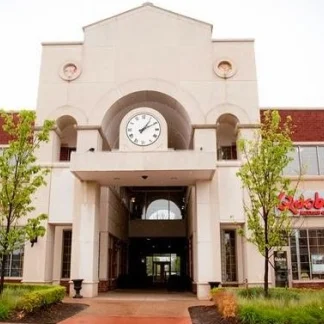Mielke and Weeks Psychological Services
Mielke and Weeks Psychological Services is a private rehab located in Rochester,...
WellHealth Medical Associates, in Rochester Hills, Michigan, offers outpatient mental and behavioral health care for adolescents and adults, including telehealth care, medically supervised ambulatory detox, general outpatient (OP) programming, and aftercare planning and support. Dedicated services are available for young adults and persons with co-occurring addiction and mental illness.
Clients in outpatient treatment receive medical and mental health assessments and personalized care planning. Those undergoing ambulatory detox receive robust medical supervision and may be prescribed FDA-approved medications to ease withdrawal symptoms and prevent potentially serious complications. Clients also engage in intensive individual, group, couples, and family psychotherapy and extensive, recovery-focused life skills training. Recovery education may address topics such as coping, self-care, trauma resolution, anger and stress management, and relapse prevention.
Their aftercare services ensure a complete continuum of care aligned with clients’ evolving needs and may include referrals for additional medical, mental health, and social service programs.
Contact us for more information: (248) 266-6073

Connect with WellHealth Medical Associates by calling their admissions team directly.
(248) 266-6073 Website Get DirectionsResearch clearly demonstrates that recovery is far more successful and sustainable when loved ones like family members participate in rehab and substance abuse treatment. Genetic factors may be at play when it comes to drug and alcohol addiction, as well as mental health issues. Family dynamics often play a critical role in addiction triggers, and if properly educated, family members can be a strong source of support when it comes to rehabilitation.
Group therapy is any therapeutic work that happens in a group (not one-on-one). There are a number of different group therapy modalities, including support groups, experiential therapy, psycho-education, and more. Group therapy involves treatment as well as processing interaction between group members.
In individual therapy, a patient meets one-on-one with a trained psychologist or counselor. Therapy is a pivotal part of effective substance abuse treatment, as it often covers root causes of addiction, including challenges faced by the patient in their social, family, and work/school life.
Group therapy is any therapeutic work that happens in a group (not one-on-one). There are a number of different group therapy modalities, including support groups, experiential therapy, psycho-education, and more. Group therapy involves treatment as well as processing interaction between group members.
In individual therapy, a patient meets one-on-one with a trained psychologist or counselor. Therapy is a pivotal part of effective substance abuse treatment, as it often covers root causes of addiction, including challenges faced by the patient in their social, family, and work/school life.
In individual therapy, a patient meets one-on-one with a trained psychologist or counselor. Therapy is a pivotal part of effective substance abuse treatment, as it often covers root causes of addiction, including challenges faced by the patient in their social, family, and work/school life.
Mielke and Weeks Psychological Services is a private rehab located in Rochester,...
Oakland Family Services – Substance Abuse is a private rehab located in Rocheste...
Rochester Area Youth Assistance is a private rehab located in Rochester Hills, M...
Havenwyck Hospital–Substance Abuse, in Auburn Hills, Michigan, provides comprehe...